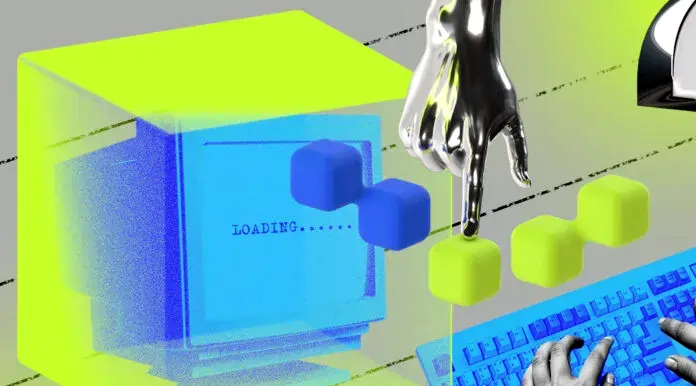Picture this: your production floor generates thousands of data points daily, your maintenance system tracks equipment performance, and your inventory system monitors stock levels. But these systems don’t talk to each other. Sound familiar? You’re not alone. According to recent industry research, manufacturing companies lose up to 47% of their data’s potential value due to integration gaps and siloed systems.
The cost isn’t just in lost insights – it’s in delayed decisions, missed opportunities, and operational inefficiencies that eat into your bottom line. But there’s good news: modern industrial data integration solutions are transforming how companies handle these challenges, turning disconnected data points into actionable intelligence.
The Growing Cost of Disconnected Industrial Systems
When industrial systems operate in isolation, the impacts ripple throughout the organization:
Operational Blind Spots
- Production issues identified too late
- Maintenance performed reactively rather than proactively
- Inventory shortages or overstock situations
- Quality control problems discovered after the fact
Hidden Financial Drains
- 30% of staff time spent searching for data across systems
- 23% increase in maintenance costs due to reactive approaches
- 15-20% excess inventory carried due to poor visibility
- 25% higher operating costs from inefficient resource allocation
Compliance and Reporting Challenges
- Manual data compilation for regulatory reports
- Inconsistent data across departments
- Delayed reporting and decision-making
- Increased risk of errors and compliance issues
Core Components of Modern Industrial Data Integration
A well-designed integration solution brings together several key elements:
Data Collection and Standardization
- Automated data gathering from multiple sources
- Standardized data formats and protocols
- Real-time data validation
- Historical data migration
Central Data Repository
- Single source of truth for all operations
- Secure, scalable storage
- Version control and audit trails
- Flexible access controls
Analytics and Visualization
- Real-time dashboards
- Custom reporting tools
- Predictive analytics capabilities
- Mobile access to key metrics
Security and Compliance
- Role-based access control
- Data encryption
- Audit logging
- Regulatory compliance features
Measurable Benefits of Integrated Industrial Systems
Companies implementing comprehensive data integration solutions report significant improvements:
Operational Efficiency
- 35% reduction in data collection time
- 40% faster decision-making
- 25% improvement in equipment utilization
- 30% reduction in downtime
Cost Savings
- 20-25% reduction in inventory costs
- 15% decrease in maintenance expenses
- 30% lower reporting costs
- ROI typically achieved within 12-18 months
Strategic Advantages
- Data-driven decision making
- Proactive maintenance capabilities
- Improved regulatory compliance
- Enhanced customer service
Implementation Strategy for Success
Successful data integration requires a structured approach:
Assessment Phase
- Document current systems and data flows
- Identify critical integration points
- Set clear objectives and KPIs
- Evaluate technical requirements
- Create implementation roadmap
Integration Approach
- Start with pilot integration
- Phased rollout to minimize disruption
- Regular testing and validation
- Continuous monitoring and adjustment
Change Management
- Clear communication strategy
- Comprehensive training programs
- Documentation and support
- Feedback collection mechanisms
The Levanta Labs Approach to Industrial Data Integration
At Levanta Labs, we understand that every industrial operation has unique integration needs. Our approach delivers customized solutions that address your specific challenges:
Custom Development Solutions
- Tailored integration platforms
- Custom APIs and connectors
- Real-time analytics dashboards
- Mobile applications
- Automated reporting tools
Implementation Support
- System architecture design
- Data migration assistance
- Team training programs
- Ongoing technical support
- Regular system updates
Security and Compliance Features
- Enterprise-grade security
- Regulatory compliance tools
- Audit trail capabilities
- Disaster recovery planning
Future-Proofing Industrial Operations
The future of industrial operations demands even greater integration capabilities:
Emerging Technologies
- AI and machine learning integration
- IoT sensor networks
- Edge computing capabilities
- Blockchain for supply chain
- Advanced analytics tools
Scalability Considerations
- Cloud-based architecture
- Flexible deployment options
- API-first design
- Modular components
- Easy feature expansion
Taking the Next Step
The transition to integrated industrial systems represents a significant opportunity to improve efficiency, reduce costs, and gain competitive advantages. While the journey requires careful planning and execution, the benefits far outweigh the initial investment.
Consider these questions as you evaluate your integration needs:
- How much time does your team spend gathering data from different systems?
- What percentage of your data is actually used for decision-making?
- How quickly can you respond to operational issues?
- Are your systems ready for Industry 4.0?
Ready to transform your industrial operations with custom data integration solutions? Get in touch with us to schedule a consultation and learn how Levanta Labs can help modernize your industrial systems. Our team of experts will work with you to design and implement a solution that meets your specific needs and drives measurable improvements in efficiency, cost control, and operational intelligence.






